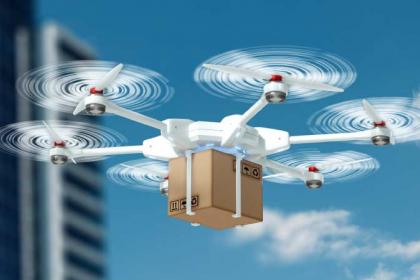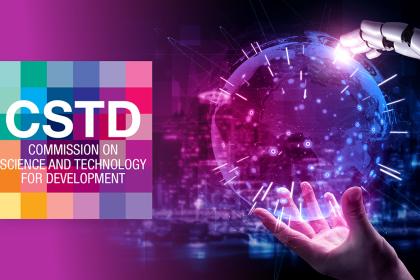
In an increasingly digitalized economy and society, the security and accountability of data transactions are critical elements for creating trust and enabling breakthrough innovations in the digital world. In this regard, blockchain technology could be a game-changer, with the potential to revolutionize processes from finance to pharmaceutical industries, from government public services to humanitarian work and development aid.
The blockchain serves as the base technology for cryptocurrency, enabling open (peer-to-peer), secure and fast transactions. The blockchain application has expanded to include various financial transactions (e.g., online payments and exchange platforms), Internet of things (IoT), health systems and supply chains.
However, issues associated with scalability, privacy concerns, uncertain regulatory standards and difficulties posed by technology integration with existing applications are some of the potential market constraints. There is also the risk that the potential of blockchain for solving developmental problems has been somewhat inflated by its early adopters and the technology media and may not be as applicable for developing and least developed countries.
What are the emerging uses of blockchain that can be breakthroughs in accelerating progress towards Sustainable Development Goals? What are the potential adverse unintended social and economic effects of this technology? How could Governments maximize the opportunities and minimize the risks?
The paper’s main messages are that blockchain technology can be used in many applications that could contribute to sustainable development. However, at this moment, blockchain innovation has focused on financial applications dissociated from the real economy. For most of the innovations in this field, the Goal is to profit by extracting rents through financial intermediation and speculative gains in cryptofinancial assets instead of creating real value through new products and services. Such behaviour, combined with the lack of regulation and the swift pace of innovation, is a receipt for financial bubbles and bursts.
At the same time, blockchain is potentially a key technology in a new technological paradigm of increasing automation and integrating physical and virtual worlds, together with technologies such as artificial intelligence (AI), robots, and gene editing. In such a scenario of the very early stages of this new paradigm’s installation period, it is still not clear the real long-impact of these technologies on the economy, societies and environment. Similar moments in the past technological revolutions offered windows of opportunity for some developing countries to catch up and others to forge ahead. Therefore, Governments of developing countries should seek to strengthen their innovation systems to strategically position themselves to benefit from this new wave of technological change.
The paper is structured as follows:
-
Chapter II sets the stage by briefly presenting blockchain technology.
-
Chapter III discusses the ecosystem of innovation related to blockchain technologies. It discusses the types of blockchain innovation, main actors, networks and interlinkages that they form to exchange knowledge, learn and innovate.
-
Chapter IV discusses how blockchain could impact the Sustainable Development Goals, focusing on how possible scenarios could play out and their effect on sustainable development.
-
Chapter V discusses the challenges that Governments face and what they could do to influence the rate and direction of innovation and competence building in blockchain to contribute to their national development priorities and accelerate the progress towards the Sustainable Development Goals.
-
Chapter VI discusses areas for international collaboration.
The issue of harnessing blockchain for sustainable development: prospects and challenges was addressed during the Commission on Science and Technology for Development, twenty-fourth session, 17 - 21 May 2021






